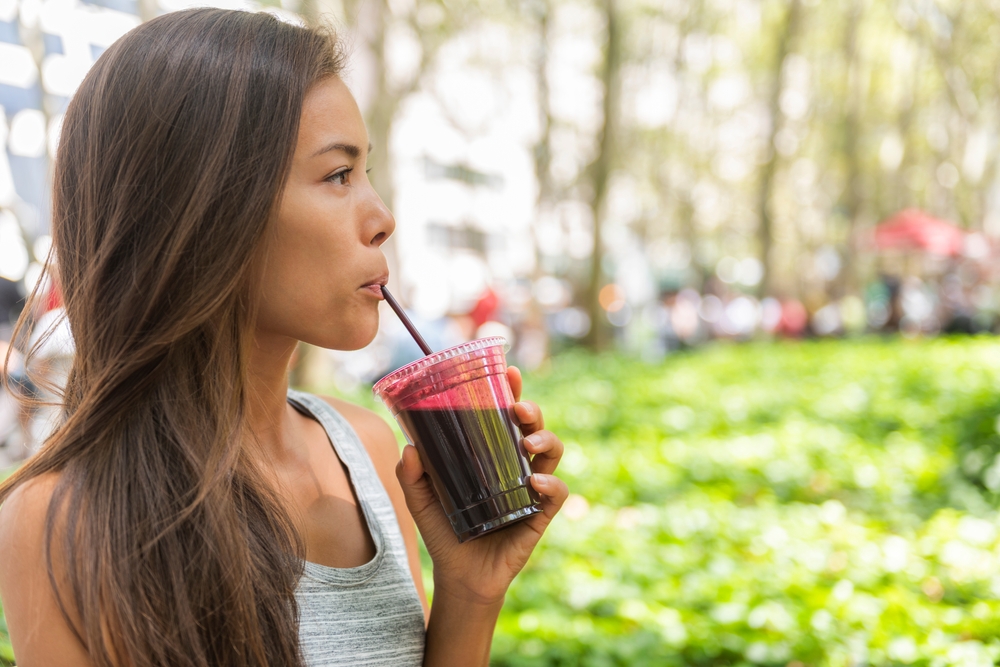Enjoying juice can be a convenient and refreshing means of incorporating essential nutrients into your daily diet. Nevertheless, it’s crucial to recognize that not all juices are created equal, and some may be more healthful than others.
In particular, if you’re on a weight loss journey, it’s important to be cautious about juices that are high in sugar. While you don’t necessarily have to eliminate your favorite sugary juices altogether, practicing moderation in your consumption can make a substantial difference in your efforts to achieve weight loss goals.
Courtney D’Angelo, MS, RD, a contributor at Go Wellness, highlights a common misconception when she notes, “We tend to believe that 100% fruit juice is exceptionally healthy, leading us to sometimes consume it in excess.” She goes on to explain that while juices like all-natural grape juice can provide a wealth of vitamins and nutrients, they also tend to be high in calories and natural sugars. This observation underscores the importance of being mindful of portion sizes and overall consumption, even when it comes to ostensibly healthy fruit juices.
One of the primary reasons to restrict your intake of sugary juices while pursuing weight loss is their typically low content of fiber and protein. For instance, D’Angelo highlights the fact that a single cup of grape juice contains a hefty 35 grams of sugar. Taking Welch’s 100% Grape Juice as an example, you’ll find 35 grams of sugar, merely one gram of protein, and zero grams of fiber in a serving.
While grape juice may stand out as a notable example, it’s not the sole culprit when it comes to potentially contributing to weight gain. Research indicates that beverages with added sugars frequently play a role in weight gain and the development of obesity. When embarking on a weight loss journey, it’s essential to prioritize nutrient-dense foods and beverages that can enhance satiety and promote feelings of fullness.
present in most fruits and fruit juices, is not particularly effective in inducing feelings of satiety. Diabetes UK further underscores this by pointing out that consuming fruit juice without its inherent fiber content allows the sugar from the fruit to enter your bloodstream more rapidly compared to consuming the whole fruit.
Fiber serves a crucial role in slowing down the rate at which sugar enters your bloodstream. Additionally, it aids in delaying digestion, which can extend the duration of feeling full and satisfied. In fact, research published in The Journal of Nutrition suggests that high-fiber diets are associated with increased weight loss.
If you’re interested in trying a juice that is lower in sugar and rich in fiber, consider options like V8 High-Fiber Vegetable Juice. Alternatively, if you’re craving something sweet, it’s advisable to enjoy your favorite fruit in its whole form rather than opting for juice.
Ultimately, there’s no need to completely eliminate your favorite fruit juice, especially since they often contain valuable nutrients and antioxidants. However, if you’re working towards weight loss, you might want to pair a small glass of juice with a high-protein, high-fiber snack, such as avocado on whole grain toast or vegetables with hummus, to help manage your appetite effectively.

